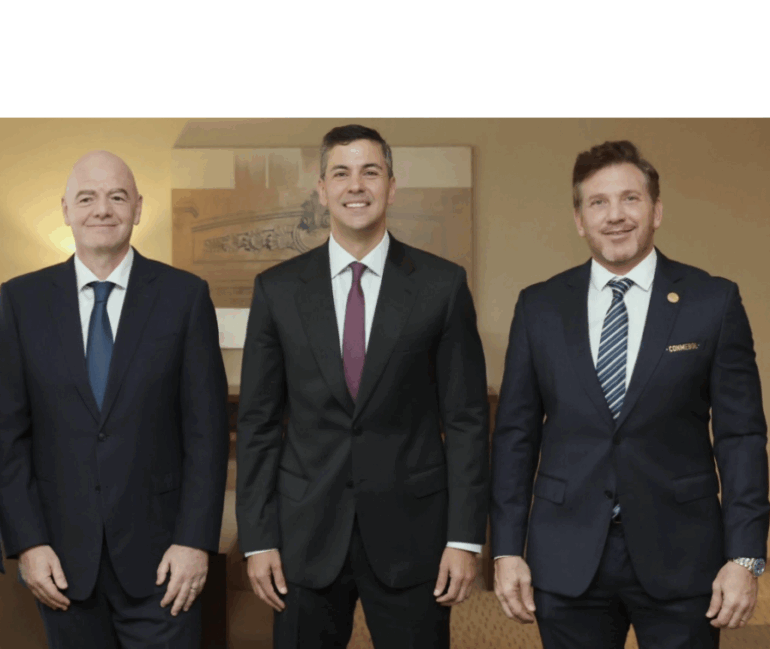How did Alejandro Domínguez’ rise in football and business happen? Thanks to his father Osvaldo who created his wealth thanks to the brutal pedophile dictator Alfredo Stroessner.
By Philippe Auclair and Håvard Melnæs
In collaboration with Sin Falta
In the afternoon of Friday 2 May, a helicopter carrying Conmebol president Alejandro Domínguez touched ground at the Estadio Facunda de Léon Fossatti, the home of Paraguayan second division club 12 de Junio. It was a typically grand entrance from the man who is now in his third term as head of the South American confederation. The Conmebol headquarters from which he'd flown were only half an hour's drive away from Villa Hayes, 12 de Junio's hometown, but a helicopter it had to be. It's not every day that a Fifa vice president makes the effort of paying a visit to such a modest club. Cameras were in place to film his arrival. A small crowd had gathered at the stadium to welcome him. At the head of the queue to greet him was one of Paraguay's most influential politicians, head of Congress Basilio "Bachi" Núñez, who also happens to be the honorary chairman of 12 de Junio, which also happens to be owned by the Núñez family.
Alejandro Domínguez (r.) welcomed at 12 de Junio by H...



